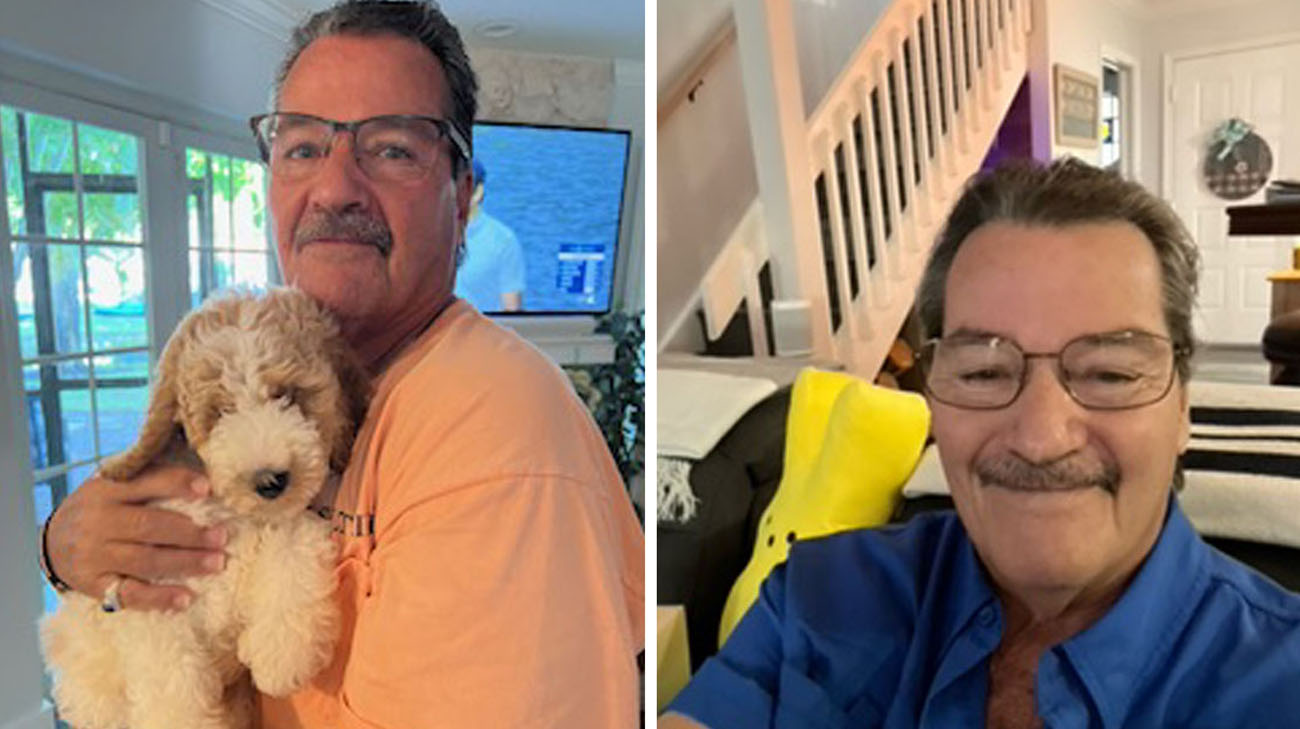
About four years ago, Mark Christofori, now 70, had just enjoyed a round of golf with some friends when he suddenly began to feel clammy and then passed out. Within 20 minutes, however, he had recovered, thanks to the help of a friend who was an EMT/firefighter.
Soon after this happened, on a recommendation from a family member, Mark went for an evaluation with David Wolinsky, MD, a cardiologist at Cleveland Clinic Weston Hospital. Dr. Wolinsky is the head of Nuclear Cardiology and director of the Cardiac Amyloid Clinic.
A scan of his heart and vascular system revealed minor blockages in three of Mark’s arteries. Dr. Wolinsky prescribed medication and regular follow-up visits as Mark’s treatment plan.
“I was feeling excellent, playing golf, walking and fishing,” Mark says. “Doc said, ‘I want you to go out and live your life but keep up exercise and good diet and the medication.’”
That’s exactly what Mark did. The father and avid golfer was still enjoying a successful career in landscaping. He loves entertaining family and friends and travels to Italy often with his wife, Kathie. He has a self-proclaimed passion for Italian cooking, too, making all of his pasta and sauces from scratch.
Three years after his first incident, Mark was on a yearly camping trip with friends when he began feeling lightheaded and a little short of breath. Upon returning home, he went to a previously scheduled follow-up appointment with Dr. Wolinsky that included a PET (positron emission tomography) scan. Cardiac PET scanning is the most accurate form of stress testing for coronary artery disease. Not only can the scan demonstrate jeopardized areas of the heart, but the test also can measure absolute blood flow reserve though each of the three main coronary arteries. This test can define those patients at high risk and who need to undergoing coronary artery bypass surgery (CABG).
“When I got home that evening, Dr. Wolinsky called and told me he didn’t like the way the scans looked,” Mark says. “He said the blockages had gotten worse.”
The next step was a cardiac catheterization, a procedure in which a tiny tube, or catheter, is placed inside a vessel in a patient’s arm or groin and then then moved to the coronary arteries. Doctors can diagnose and sometimes fix a problem in the arteries at this time. Howard Bush, MD, a cardiologist at Weston Hospital, performed the procedure on Mark.
Afterward, Mark met with Jose Navia, MD, Vice Chair, Heart, Vascular and Thoracic Institute at Cleveland Clinic in Florida. Dr. Navia recommended Mark undergo open-heart surgery to create bypasses for four blockages in his arteries. On March 27, Mark had the surgery.
“I cannot say enough good things about the staff,” Mark says. “The doctors, the nurses – it’s just a well-oiled machine. It’s fabulous.”
After an initial two weeks of recovery in the hospital, Mark went home. He said he feels good, except for some soreness and a slight loss of stamina. He is participating in a cardiac rehabilitation program and has already gone back to work part-time.
Related Institutes: Heart, Vascular & Thoracic Institute (Miller Family)

